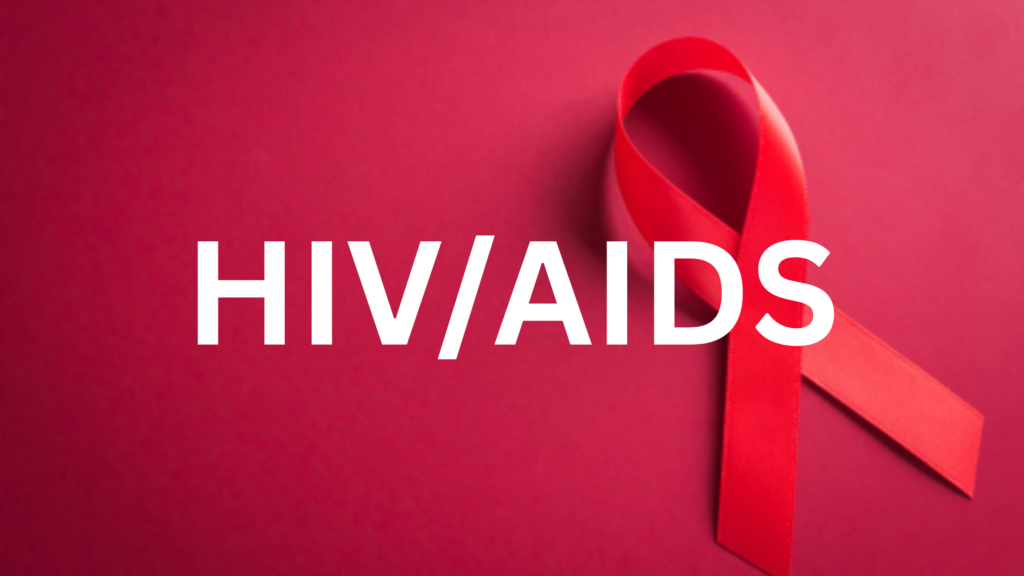🦠 What is HIV/AIDS?
HIV (Human Immunodeficiency Virus) is a virus that attacks the body’s immune system, specifically the CD4 (T) cells, which help fight infections.
If untreated, HIV reduces the number of these cells, making the body more vulnerable to infections and certain cancers.
AIDS (Acquired Immunodeficiency Syndrome) is the most advanced stage of HIV infection, when the immune system is severely damaged.
🧬 How is HIV Transmitted?
Unprotected sexual contact (vaginal, anal, or oral)
Sharing needles or syringes
From mother to baby during pregnancy, childbirth, or breastfeeding
Blood transfusions with infected blood (rare in countries with screening)
⚠️ Stages of HIV Infection:
Acute HIV Infection
Occurs 2–4 weeks after exposure
Flu-like symptoms: fever, sore throat, rash, swollen glands
Very high viral load — highly contagious
Clinical Latency (Chronic HIV)
Virus is active but reproduces slowly
May have no symptoms or mild ones
Can last years with treatment
AIDS
CD4 count falls below 200 cells/mm³ (normal: 500–1,600)
Opportunistic infections or cancers develop (e.g., pneumonia, Kaposi sarcoma)
Without treatment, survival is typically 3 years
🧪 Diagnosis:
HIV antibody/antigen tests (blood or oral swab)
Nucleic acid tests (NAT) to detect viral RNA
Regular monitoring of CD4 count and viral load
💊 Treatment:
Antiretroviral Therapy (ART) — a combination of drugs that suppress HIV replication
ART helps maintain a healthy immune system, prevents progression to AIDS, and reduces transmission risk
Must be taken daily and lifelong
⚠️ Prevention:
Use condoms consistently
Pre-exposure prophylaxis (PrEP) for high-risk individuals
Avoid sharing needles
Routine HIV screening in healthcare
Safe blood transfusions and mother-to-child transmission prevention
🧭 Living with HIV/AIDS:
With proper treatment, people can live long, healthy lives
Regular medical care and adherence to ART are essential
Healthy lifestyle: balanced diet, exercise, avoid infections
Mental health support is important
